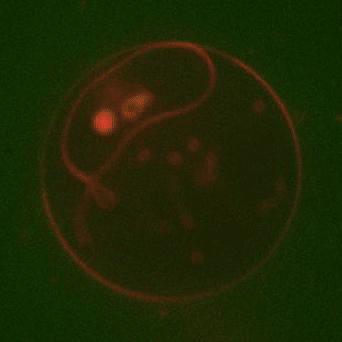
Department of Cell and Developmental Biology
University of California San Diego
News
-
09/05/2025 Jibin received an F99 award from National Cancer Institute!
-
05/19/2025 Kimberly Khow joined our lab. Welcome!
-
05/08/2025 Katelyn Thai joined our lab. Welcome!
-
02/24/2025 Eric Shao joined our lab. Welcome!
-
01/03/2025 Takeya's paper published on Science Immunology!
-
12/05/2024 Takeya and Jibin both won the "Top 5 Poster Award" in the 22nd Annual UC Irvine Immunology Fair!
-
09/26/2024 Takeya's manuscript posted on bioRxiv!
-
09/04/2024 Jibin won the "Best Poster Award" in the UCSD Moores Cancer Center Annual Scientific Retreat!
-
05/28/2024 Yufei won the 2nd place in the Student Research Showcase of UCSD School of Biological Sciences!
-
05/23/2024 Jibin qualified the Advancement to Doctoral Candidacy!
-
05/11/2024 Yunlong decided to start his own lab at the St. Jude Children's Research Hospital!
-
04/27/2024 George received a medical school offer from Stony Brook University Renaissance School of Medicine!
-
04/15/2024 Sabrina decided to attend the University of Cambridge for undergrad!
-
04/15/2024 Emily decided to attend the University of Pennsylvania for undergrad!
-
04/15/2024 Yayuan decided to join Yale University for PhD study!
-
01/05/2024 Yufei received a medical school offer from Beijing Union Medical College!
We work at at the interface of biochemistry, cell biology, and immunology. Our central goal is to dissect the cell biological mechanisms of immune checkpoints, "brakes" of our immune system that can be hijacked by tumors to evade immune destruction. Antibody mediated blockade of immune checkpoints has produced some success in treating a subset of tumors in a fraction of patients. However the response is restricted to a small subset of tumors and patients. Molecular studies of immune checkpoints are needed to expand the therapy to a larger population of patients. Our long-term goal is to fill this mechanistic gap, with a joint use of cell-free reconstitution, live cell imaging and cell culture assays.

Image by Graham Johnson
Cell free reconstitution: We reconstitute signaling networks on model membranes to gain quantitative, in-depth insights into T cell signaling that are invisible to traditional approaches.

Signaling dynamics: We probe the spatiotemporal dynamics of signaling proteins in live T cells.

Cell cultures: We develop precise and robust cell culture assays to probe both proximal and distal readouts of immune checkpoints signaling.

Mouse models: We cross-check our findings between in vitro systems and animal models.


